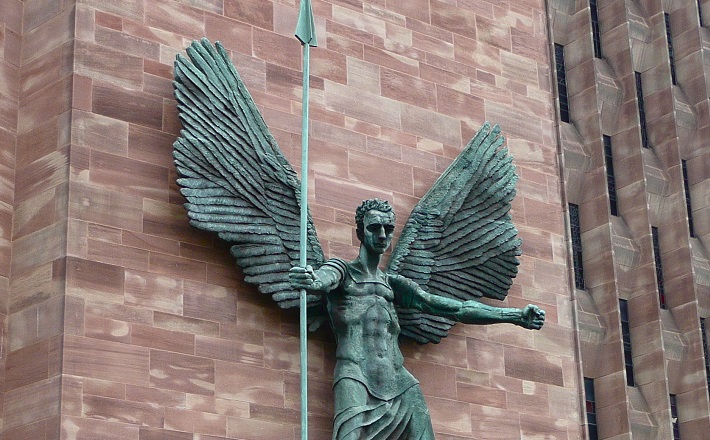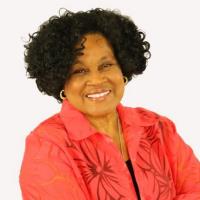Commentary on 1 Samuel 1:4-20
The reader who wants to understand Hannah’s story must understand not only the intricacies of her story, but the context in which her story appears as well.
Although separated in most Bibles,1 1 and 2 Samuel form a single book that depicts the difficulty involved in Israel’s transition from a loose system of judges to a unified monarchal system. As the opening narrative, Hannah’s story provides a foray into this compelling narrative portrayal of the complexities involved in this transition.
Knowing that the Bible seldom highlights a woman’s story, the reader is immediately put on notice that this is not business as usual. Hannah’s barrenness puts the reader on notice that her child will be a special blessing from God that will impact the story of Israel for generations to come.
In a world where barrenness was considered a curse, only the birth of a child could complete Hannah. Day after day, year after year, she had to live with a pain in her heart that would not go away. Her barrenness was an “unsettled ache.”2 In his book, The Power of the Names of God, Tony Evans writes, “the worst turmoil of all often takes place in one’s own soul. This happens when you can’t seem to live with yourself, when your own pain, anxiety, depression, and regret eat you up, leaving you with an unsettled ache. You are at war within.”3
An unsettled ache lingers no matter what one does. Possibility thinking, positive psychology, words of affirmation, wishing, hoping, even praying don’t make the hurt go away. Like the smell of smoke after a cigarette has extinguished, this type of pain relentlessly meanders in one’s thoughts. It is an unwelcome guest that wore out its welcome long ago. Unlike hurts that are at least manageable, this type of hurt affects one’s entire life, leaving heart wounded and spirit broken. This type of wound impinges not only life circumstances, but also one’s sense of self as well.
This is the “Hannah kind of hurt.”4 This kind of hurt leads to addictions and “emotional disorders”5 since people will do just about anything to relieve the agony as they “search for escape — some way to numb the pain, remove the anguish, and discover some momentary peace.”6 Hannah resorted to no such escape.
As if barrenness were not enough, Hannah withstood the affliction of being misunderstood. Like Job’s friends who had no clue, Hannah’s husband, Elkanah, just didn’t get it. Thinking himself better than ten sons, his inept words of comfort made bad matters worse. Thinking herself better than Hannah, Peninnah’s disdainful attitude and repeated boasts about her fertility left Hannah shattered beyond words. Adding injury to insult, Eli, an insensitive priest, accused her of being drunk.
Despite her pain, Hannah would not be like the barren women before her. She would not be like Sarah who insisted that Abraham evict Hagar so that Ishmael would have no part in Isaac’s inheritance. She would not be like Rachel whose competition with her sister Leah to bear children for Jacob did not end until Rachel’s self-fulfilling prophecy came true when she died giving birth to Benjamin.
Hannah chose another path. Unlike the barren women before her, she took her concerns to God. While David is explicitly described as a man after God’s own heart, Hannah implicitly is a woman after God’s own heart. Like David who later would refuse to harm God’s anointed, King Saul, Hannah refuses to retaliate against her rival, Peninnah.
Although Hannah did not share the details of her situation, Eli eventually understood that hers was a heartfelt cry. Assured by Eli by God heard and would answer her prayer she went home, confident that God’s answer would manifest itself. God’s answer came when she gave birth to Samuel, Israel’s last judge, the prophet who anointed Saul and David, Israel’s first two kings.
Later in 1 Samuel 1:21-28 Hannah gives Samuel back to God. When she leaves him in the temple to be mentored by Eli, she sets in motion the series of events that propel Israel toward monarchy, which carries within it the seeds for its own demise, including the consequent Babylonian Exile with its loss of temple, land, and monarchy as well as the return to rebuild under Ezra and Nehemiah.
By placing Hannah’s story at the beginning of the book, the writer hints that the story of Israel’s transition and subsequent events cannot happen, cannot be told without first telling her story. Hannah is an integral part of this transition. This story cannot begin without her.
Notes:
1 1 and 2 Samuel form a single book in a recent publication, The Books of the Bible, published by Zondervan in 2012.
2 Tony Evans, The Power of God’s Names (Eugene: Harvest House Publishers), 101.
4 Alfie Wines, “Hannah’s Heartfelt Cry,” sermon by author, Fort Worth, Texas, January 18, 2015.


November 15, 2015